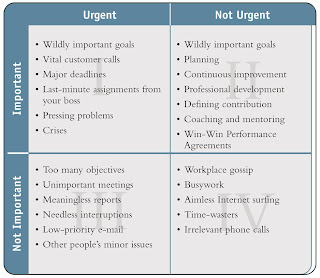I’ve been running some time management workshops recently and one of the things that we’ve been looking at is the direction in which people are heading, their longer-term goals. Having a direction is an excellent way (and possibly the only real way) of establishing your priorities, without which it’s impossible to organise yourself in any meaningful way. The thinking behind this is that it’s important to know where you want to get to otherwise, as Lewis Carroll pointed out, it doesn’t really matter which way you go.
I left school with weak A-levels and didn’t go to university. A few years ago, I decided that I was going to return to studying and get the degree I didn’t get a quarter of a century ago. As I was thinking about this, it struck me that it would take about six years to do this and that I would be 45 years old by the time I got my degree. That length of time felt daunting until I realised that, unless something dreadful happened, in six years I was going to be 45 anyway – I might as well be 45 with a degree.
My destination was the degree and I had a vague idea of what I was going to do with it when I began studying. An analogy that I often use is that of a pilot filing a flight plan: when the plane takes off, the pilot knows where he’s going to land – unless, of course, something unexpected happens. It’s a helpful analogy but, like any analogy, if you push it too hard it will break down. Since I made my choice, my outlook has changed and evolved. In the words of every contestant on the X-Factor, I’ve been on a journey and the view from where I am now is different to the view I had when I started studying.
Someone once told me that “to decide is to divide” – a yes to one option is automatically a no to another option. But that yes also opens up the possibility of a whole lot of other options. Because of the choice I made five years ago, I was alert to several opportunities that have come my way in the last few weeks, opportunities that have helped to clarify that vision I mentioned above. For us, the destination doesn’t have to be fixed in stone – we’re not locked into a flight plan and it’s possible for us to change our destination at any point. It’s what makes the journey exciting.




